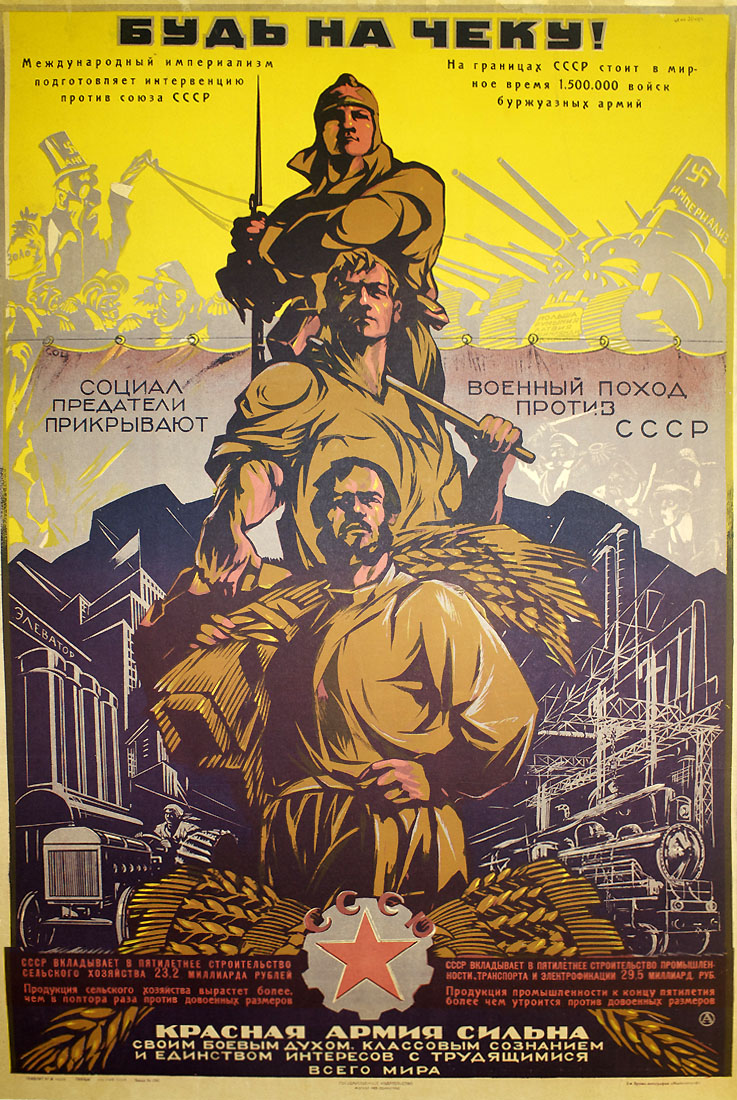
By the end of the Five-Year Plan, industrial production will have increased by more than three times in comparison with the pre-war period. The Red Army is strong with its fighting spirit, class-consciousness and unity of interests with the workers of the whole world.
Número de Cartel: PP 725
Información sobre el cartel:
[On the top] Be on the Lookout!
[On the top left] International Imperialism is preparing an intervention against the Union [sic] of the USSR.
[On the top right] In peacetime there are 1,500,000 troops of the bourgeois armies on the borders of the USSR.
[partial translation offered]
Tamaño: 45x31
Tipo de cartel: Litografía
Fecha de publicación: 1929
Información técnica: Publication [illegible]; Order No. 1367
Ediciones: 50,000
Número de Glavlit: A-41544
En el catologo: PP 725 Military
Artista: Artist Unknown — неизвестный художник
The artist's name on the poster is not indicated. By assigning Artist Unknown to a poster it also could mean the artist used a chop mark whereby no signature is seen thus rendering the artist's identity anonymous.
Leer más...
Imprenta: Mospoligraf (Moscow Polygraphic), Moscow — Мосполиграф, Москва
Mospoligraf was a state-owned printing trust located in Moscow. When the Soviet Union formulated a plan in 1921 to consolidate the nation’s largest and best printing operators into state-owned trusts; Mospoligraf was organized in 1922 to carry out consolidation of the Moscow printing industry. With a staff of over two thousand, Mospoligraf was the second-largest printing trust organized in Moscow outside of the Mospechat’ trust, and it oversaw a myriad of houses under local printing sections such...
Leer más...
Editorial: State Publishing House — Государственный издательство
The State Publishing House had its origins in Imperial Russia as the Royal Print Yard of St. Petersburg. In 1917, the Soviets nationalized the print yard and requisitioned its presses. From requisitioning emerged the Publishing House of the Petrograd Soviet that was formed in the winter of 1917 by the Literary and Publishing Department of People's Commissariat for Education. In 1919, the State Publishing House in St. Petersburg changed its name to Petrogosizdat (Petrograd State Publishing) and in 1924, ...
Leer más...